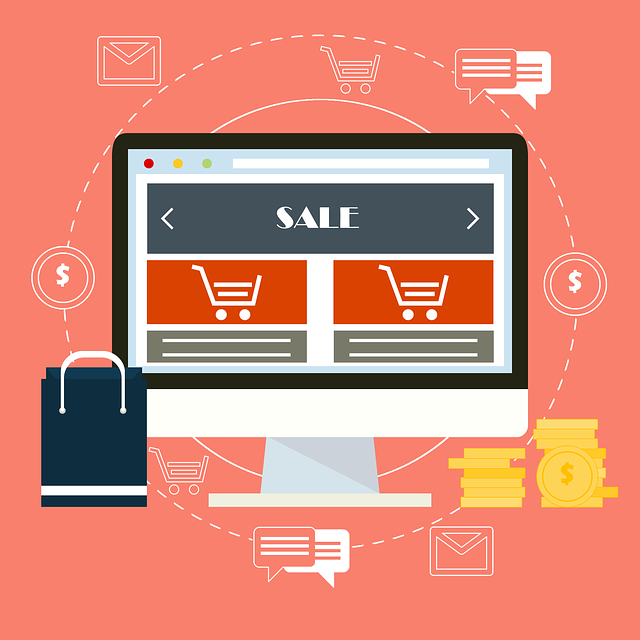In today’s digital world, businesses seek new ways to grow. Online marketplaces offer a path. They connect sellers with buyers easily. But why do companies pick this route? Many reasons exist. Moreover, hidden secrets make it appealing. For instance, marketplaces cut risks. They also boost visibility. Therefore, let’s explore this topic deeply.
First, consider the rise of e-commerce. Sales online soar each year. Businesses adapt quickly. However, owning a website costs much. Marketplaces provide an alternative. They host products for you. Additionally, they handle traffic. This saves time and money. Why businesses sell on marketplaces becomes clear. It’s about efficiency.
Furthermore, benefits abound. Reaching customers grows simple. Brand exposure increases too. Yet, some secrets stay hidden. Like testing products without big investments. Or reducing ad spends smartly. Thus, this article uncovers them. It optimizes for keywords too. Such as “benefits of selling on online marketplaces” and more.
Overall, marketplaces transform business strategies. They offer pros and cons. But the advantages often win. So, dive in with us.
Why Businesses Sell on Marketplaces
Businesses choose marketplaces for many reasons. Access to vast audiences tops the list. For example, platforms like Amazon draw millions daily. This exposure beats solo efforts. Moreover, startups lack resources. Marketplaces provide ready infrastructure. They handle payments and shipping often.
Additionally, costs stay low. No need for custom websites initially. Fees exist, but benefits outweigh them. Statistics show 92% of retailers agree. Marketplaces help reach customers easily. Therefore, small firms thrive here.
However, competition is fierce. Yet, this pushes innovation. Businesses learn fast. They adapt products accordingly. Furthermore, global reach opens doors. Sell worldwide without borders. This reduces local market risks.
In short, marketplaces suit diverse needs. From handmade crafts to tech gadgets. Why businesses sell on marketplaces? It’s strategic and smart.
Benefits of Selling on Online Marketplaces
The benefits of selling on online marketplaces are numerous. First, instant credibility comes built-in. Platforms like eBay foster trust. Customers shop confidently. Moreover, traffic flows steadily. No heavy marketing required.
Additionally, scalability shines. Grow sales without inventory hikes. For instance, drop-shipping models work well. This cuts storage costs. Furthermore, data insights help. Analyze trends easily. Adjust strategies on the fly.
However, variety matters. Offer more products via partnerships. This expands catalogs quickly. Benefits include lower entry barriers too. New sellers start fast. No tech expertise needed.
Statistics reveal growth. E-commerce sales hit trillions globally. Marketplaces drive much of it. They offer convenience. Customers compare prices swiftly.
In addition, payments secure seamlessly. Fraud risks drop. Overall, these perks boost profits. Businesses gain edges over competitors.
How Online Marketplaces Help Businesses
Online marketplaces help businesses in key ways. They provide tools for growth. For example, built-in analytics track performance. This informs decisions. Moreover, customer service integrates often. Handle queries efficiently.
Additionally, logistics simplify. Services like fulfillment centers exist. Ship products hassle-free. Therefore, focus on core operations. However, visibility increases too. Algorithms promote top sellers.
Furthermore, partnerships form easily. Collaborate with suppliers. This streamlines supply chains. How online marketplaces help businesses? By reducing overheads.
They also mitigate risks. Diversify sales channels. Avoid reliance on one platform. Statistics show 90% of sellers benefit from easier competition. In essence, support abounds.

Online Marketplace Strategy for Business
Crafting an online marketplace strategy for business requires planning. Start with goals. Define target audiences. Then, select platforms wisely. For instance, Etsy suits creatives. Amazon fits general goods.
Moreover, optimize listings. Use keywords effectively. This boosts search rankings. Additionally, price competitively. Monitor rivals closely. However, build reviews. Encourage feedback actively.
Furthermore, diversify. Sell on multiple sites. This spreads risks. Online marketplace strategy for business includes promotions too. Run deals timely.
Integrate tools. Use software for inventory. Sync across channels. Therefore, efficiency rises. Track metrics regularly. Adjust as needed. Success follows smart tactics.
In addition, learn from data. Analyze sales patterns. Refine approaches. This strategy ensures longevity.
Selling on Amazon vs. My Own Website
Selling on Amazon vs. my own website sparks debate. Amazon offers huge traffic. Millions visit daily. Your products gain exposure fast. Moreover, fulfillment by Amazon eases shipping.
However, fees apply. Commissions cut profits. On your site, keep more earnings. Additionally, control branding fully. Customize experiences uniquely.
Furthermore, Amazon builds trust quickly. Customers rely on reviews. But your website fosters loyalty. Direct customer data access helps. Selling on Amazon vs. my own website? Weigh pros.
Amazon suits beginners. Low setup costs. Websites demand investment. Yet, SEO on sites pays long-term. Drive organic traffic.
In contrast, Amazon’s competition is high. Stand out harder. Your site differentiates better. Choose based on needs.
Reaching New Customers on Online Marketplaces
Reaching new customers on online marketplaces is straightforward. Platforms attract diverse users. Target niches easily. For example, use filters and categories.
Moreover, recommendations help. Algorithms suggest products. This exposes your items. Additionally, global access expands reach. Sell beyond borders.
However, optimize profiles. High-quality images matter. Compelling descriptions convert. Furthermore, promotions draw attention. Discounts entice trials.
Statistics indicate marketplaces aid 92% in customer acquisition. Therefore, leverage features. Engage via ads if needed.
In short, new customers await. Tap into built-in audiences.
Building Brand Visibility on Marketplaces
Building brand visibility on marketplaces takes effort. Start with consistent branding. Use logos everywhere. Moreover, tell stories in descriptions. Connect emotionally.
Additionally, gather reviews. Positive feedback boosts ranks. However, respond promptly. Build relationships. Furthermore, use social proof. Share success tales.
Marketplaces amplify exposure. Millions see your listings. Building brand visibility on marketplaces? It’s multiplicative.
Optimize for searches. Keywords enhance discoverability. Track progress and visibility grows over time.
Reducing Advertising Costs by Selling on Marketplaces
Reducing advertising costs by selling on marketplaces is a secret perk. Platforms drive organic traffic. No need for pricey ads initially. Moreover, built-in promotions suffice.
Additionally, pay-per-click options exist. But costs stay lower. However, leverage free tools. SEO on listings works.
Furthermore, customer referrals help. Satisfied buyers spread word. Statistics show marketplaces cut marketing expenses. Therefore, savings add up.
Reducing advertising costs by selling on marketplaces frees budgets. Invest elsewhere wisely.
Getting Started with a New Business on Marketplaces
Getting started with a new business on marketplaces is simple. Choose a platform first. Research fits. For example, eBay for auctions.
Moreover, create accounts. Verify details. Additionally, list products. Take clear photos. Write descriptions well.
However, set prices right. Factor fees in. Furthermore, handle shipping. Decide methods early.
Learn policies. Avoid pitfalls. Build momentum. Start small. Scale up gradually.
E-commerce Marketplace Pros and Cons
E-commerce marketplace pros and cons balance out. Pros include wide reach. Access global buyers. Moreover, low barriers.
Additionally, trust factors in. Platforms secure transactions. However, cons involve fees. Profits shrink.
Furthermore, competition intensifies. Differentiate hard. Limited control too. Branding restricts.
Statistics highlight pros. 90% see competitive edges. E-commerce marketplace pros and cons? Weigh carefully.
Data access limits. Marketplaces own info. Yet, convenience wins often.
Online Marketplace SEO
Online marketplace SEO optimizes visibility. Use keywords in titles. Research trends. Moreover, descriptions matter. Include details richly.
Additionally, images tag well. Alt text helps. However, reviews boost ranks. Encourage them.
Furthermore, update listings. Fresh content favors. Online marketplace SEO? It’s essential.
Tools assist. Analyze performance. Adjust tactics. Rankings climb steadily.
Using Marketplaces to Test New Products
Using marketplaces to test new products is clever. Launch quickly. Gauge interest fast. Moreover, feedback comes direct. Adjust based on reviews.
Additionally, low costs apply. No big commitments. However, monitor sales. Track metrics.
Furthermore, scale winners. Drop losers. Using marketplaces to test new products? Reduces failures.
Hidden secret: Minimal risk. Innovate boldly.

Selling on Multiple Marketplaces
Selling on multiple marketplaces diversifies. Spread risks. Moreover, reach varied audiences. Amazon for mass. Etsy for niche.
Additionally, manage inventory. Use sync tools. However, track fees. Vary per site.
Furthermore, optimize each. Tailor strategies. Selling on multiple marketplaces? Boosts revenue.
Online Marketplace Competition
Online marketplace competition is tough. Many sellers vie. Differentiate via quality. Moreover, price smartly. Avoid wars.
Additionally, innovate offerings. Unique sells. However, study rivals. Learn strengths.
Furthermore, build loyalty. Service excels. Online marketplace competition? Drives excellence.
Adapt or perish. Stay agile.
Customer Acquisition Through Marketplaces
Customer acquisition through marketplaces is efficient. Platforms advertise. You benefit. Moreover, targeted ads help. Reach ideals.
Additionally, referrals grow. Happy customers return. However, engage actively. Respond fast.
Furthermore, promotions attract. Deals convert. Customer acquisition through marketplaces? Cost-effective.
Data shows high success rates. Leverage wisely.

How Marketplaces Reduce Business Risk
How marketplaces reduce business risk is a hidden gem. Diversify channels. Avoid single-point failures. Moreover, shared logistics. Platforms handle shipping.
Additionally, fraud protection. Secure payments. However, data backups exist. Lose less.
Furthermore, test markets. Launch small. Statistics prove risk drops.
Scalability without overcommit. Grow safely.
Selling on Amazon
Selling on Amazon dominates e-commerce. Vast audience awaits. Use FBA for ease. Moreover, ads amplify. Reach more.
Additionally, reviews build trust. Aim high. However, fees are considered. Plan budgets.
Selling on Amazon? Profitable often. Optimize listings.
Selling on Etsy
Selling on Etsy suits artisans. Handmade focus. Moreover, community thrives. Connect creators.
Additionally, low fees. Start affordable. However, niche limits. Target right.
Selling on Etsy? Creative haven. Build uniquely.
Selling on eBay
Selling on eBay offers auctions. Bid excitement. Moreover, fixed prices too. Flexible.
Additionally, global buyers. Expand reach. However, competition high. Stand out.
Selling on eBay? Versatile choice. Adapt sales.
Selling on Walmart Marketplace
Selling on Walmart Marketplace grows fast. Competitive prices. Moreover, integration easy. Sync inventory.
Additionally, trust from brand. Customers loyal. However, standards are strict. Meet them.
Selling on Alibaba
Selling on Alibaba targets B2B. Wholesale deals. Moreover, international scope. Asia strong.
Additionally, tools aid. Negotiate well. However, verify buyers. Caution key.
Selling on Alibaba? Bulk opportunities. Network wide.
Conclusion
In conclusion, marketplaces hold hidden secrets. They offer growth paths unseen. Why businesses choose them? Benefits like reach and cost savings. Moreover, strategies enhance success.
However, mind cons. Competition and fees. Yet, pros dominate. Use for testing and visibility. Therefore, embrace wisely.
Overall, optimize with SEO. Sell across platforms. Reduce risks smartly. Businesses thrive thus. Explore today.

